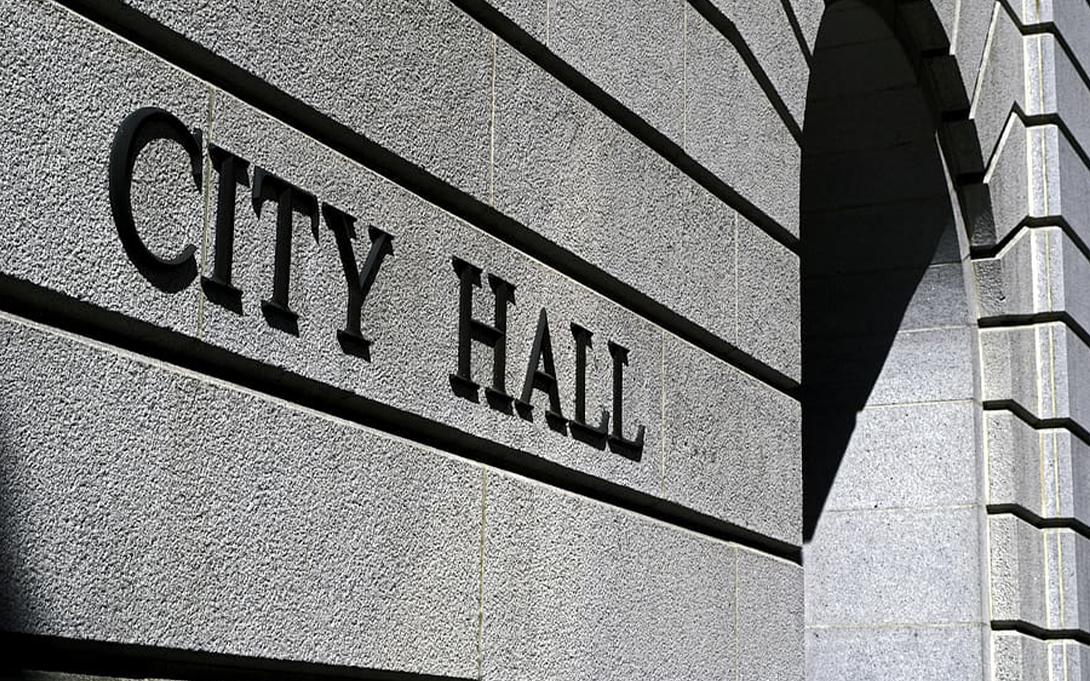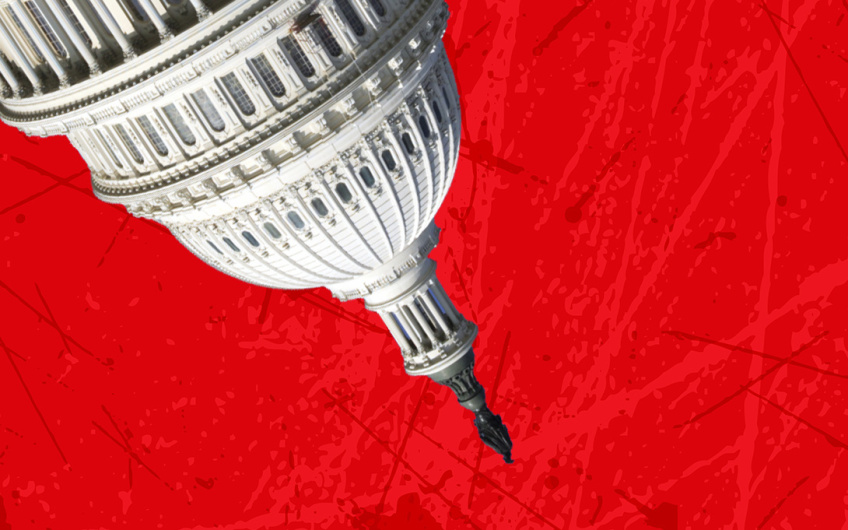-
- Citizen Engagement
- Civic Discourse
- Assessments of relations between state government and local jurisdiction
- Assessments of local jurisdiction internal relations
- Election Administration
- Michigan local leaders expect increased challenges for the 2020 election, but are confident about administering accurate elections (October 2020)
- Michigan local leaders expect mixed impacts from expanded voter registration and absentee voting reforms (July 2020)
- Local leaders’ views on elections in Michigan: accuracy, problems, and reform options (November 2017)
- U.S. Census
- Confidence in the accuracy of Michigan’s 2020 Census count among local leaders was not very high, slips further(August 2020)
- Michigan local government preparations and concerns regarding the 2020 U.S. Census (September 2019)
- Michigan local governments actively promote U.S. Census participation (August 2010)
- Ethics and Accountability
- Assessments of Michigan’s Emergency Manager Law
- Police-community relations
- Trust in government:
- Ratings of government performance and “right track” assessments
- Local leaders' evaluations of Michigan's direction and Governor's performance during the COVID-19 pandemic's arrival(July 2020)
- New Governor, new evaluations of the direction Michigan is headed among local leaders (August 2019)
- Rising confidence in Michigan’s direction among local leaders, but partisan differences remain (July 2018)
- Michigan local leaders' doubts continue regarding state's direction (July 2016)
- Confidence in Michigan's direction declines among state's local leaders (August 2015)
- Confidence in Michigan’s direction holds steady among state’s local leaders (August 2014)
- Local leaders evaluate state policymaker performance and whether Michigan is on the right track (August 2013)
- Michigan’s local leaders more positive about Governor Snyder’s performance, more optimistic about the state’s direction (July 2012)
- Despite increased approval of state government performance, Michigan's local leaders are concerned about the state's direction (August 2011)
- Local government officials give low marks to the performance of state officials and report low trust in Lansing (March 2010)
The Functioning of Democracy: Insights from Michigan’s local leaders
Summary
CLOSUP’s Functioning of Democracy Project is designed to increase our understanding of how American democracy is functioning at the local level, based on the unique perspective of Michigan’s local government leaders. It also serves as a Signature Initiative of the the University of Michigan’s Democracy & Debate program, providing resources, support, and analysis for faculty, students, and others interested in learning more about the state of U.S. democracy at the grassroots level.
These resources and projects draw from data collected through the Michigan Public Policy Survey (MPPS), an ongoing program launched in 2009 that surveys top elected and appointed local leaders across the state of Michigan. Over the years, the MPPS has fielded in-depth batteries of questions on a wide variety of issues related to our democratic system, such as citizen engagement, local officials’ trust in other levels of government and in their citizens, relationships and communication between the state government and its local jurisdictions, civil civic discourse, election administration, and more.
The Functioning of Democracy Project aims to make MPPS and other CLOSUP resources accessible to users across the University and beyond, to integrate the Center's research data and findings into the University's Democracy & Debate initiative, and to encourage a “deeper dive” into the wealth of available MPPS data.

CLOSUP’s Functioning of Democracy Project draws on the unique perspective of Michigan’s local government leaders, gathered through the Michigan Public Policy Survey, to increase our understanding of how American democracy is functioning at the local level.
THE MPPS DEMOCRACY COMPENDIUM
The MPPS Functioning of Democracy Compendium is a summary overview of the findings from many of the democracy-related topics asked of local officials on the MPPS questionnaires from 2009-2020.
The compendium includes brief chapters on the following topics:
- Citizen Engagement and Public Participation in Local Government Decision Making
- Officials’ Opinions of Their Residents’ Input
- Civic Discourse in Local Communities
- Working Relationships among Local and State Leaders
- Trust in Government
- Government Ethics
- Voting and Election Administration
- The U.S. Census
- The Functioning of Democracy Overall
An article on the functioning of democracy specifically within Michigan's townships is featured in the Michigan Township Association's February 2021 Township Focus magazine
For more information about the Democracy Compendium, contact Dr. Debra Horner at [email protected]
VIEWING MPPS DATA ACROSS THE URBAN-RURAL SPECTRUM
There is much talk, especially in recent years, about the urban-rural divide: the idea that people from urban and rural places think fundamentally differently about a whole range of policy issues, and about governance itself. Most commonly, this divide is attributed to politics and demographic differences between urban and rural residents. But differences in geography—specifically population density, land use, and prevailing industry—may also contribute to different policy preferences and participation in government. And further, while much attention is drawn to areas of disagreement, there are areas where Americans share common ideals.
Using data from previous iterations of the Michigan Public Policy Survey (MPPS), Dr. Sarah Mills will lead a team of Ford School students in conducting in-depth analysis to identify where there are and—importantly—are not differences along the urban-rural continuum, as it relates to the functioning of democracy at the local level. In particular, the project will explore similarities and differences in attitudes among local government leaders and their communities on issues such as:
• The state of civil civic discourse
• Public participation in decision-making
• Community engagement practices
• Access to government information and an informed citizenry
• Local government policy priorities
Results of the project were presented in a public event on November 16, 2020.
- View the video recording
- Powerpoint slides (in PDF format)
- Elected Officials’ Perceptions of Civic Discourse with and among Residents across the Urban-Rural Spectrum
- Perspectives on Public Participation Across the Urban-Rural Spectrum
- Comparing Citizen Engagement across the Rural-Urban Spectrum
- Internet Access and Connectivity across the Urban-Rural Spectrum
- Privatization of Local Government Services: Understanding Differences Across Michigan’s Urban-Rural Spectrum
- Student Paper Series
- Elected Officials’ Perceptions of Civic Discourse with and among Residents across the Urban-Rural Spectrum
- Direct Democracy in Action: Comparing Citizen Engagement efforts across the Urban-Rural Spectrum in Michigan
- Internet Access and Connectivity across the Urban-Rural Spectrum
- Privatization of Local Government Services: Understanding Differences Across Michigan’s Urban- Rural Spectrum
For more information about this urban-rural continuum project, contact Dr. Sarah Mills at [email protected]
PRIMARY ANALYSIS OF MPPS DEMOCRACY SURVEY DATA VIA PUBLIC USE DATASETS
In order to share the MPPS data with other researchers and students, including classroom use at the graduate and undergraduate levels, in order to improve understanding of state and local government and provide analysts with direct access to the data themselves, a wide range of topic-specific MPPS Public Use Datasets (PUDs) have been deposited into the data archive at ICPSR.
These free and easy-to-use datasets and their accompanying codebooks can be downloaded immediately by anyone for analysis in Stata, SPSS, or as CSV files. They contain only portions of each survey, broken into themed collections of data. Datasets containing democracy-themed survey topics include:
|
Topic |
Public Use Datasets |
|
Citizen Engagement |
|
|
Civic Discourse |
|
|
Assessments of local jurisdiction internal relations |
|
|
Election Administration |
|
|
U.S. Census |
|
|
Ethics and Accountability |
|
|
Assessments of Michigan’s Emergency Manager Law |
|
|
Police-community relations |
|
|
Trust in federal, state, and local governments |
|
|
Trust in citizens |
|
|
Ratings of Michigan Governor and Legislature |
Fall 2009 |
|
Ratings of Michigan State Agencies |
|
|
Rating of own jurisdiction’s governing Board or Council |
|
|
Ratings of U.S. President and Congress |
|
|
Assessments of whether state and U.S. are on the right track |
Spring 2011 |
|
Public participation in decision making |
Spring 2009 |
For more information about the MPPS Public Use Datasets, contact Natalie Fitzpatrick at [email protected]


